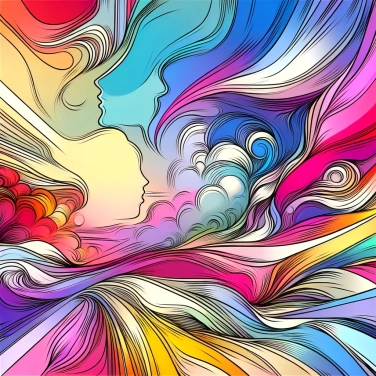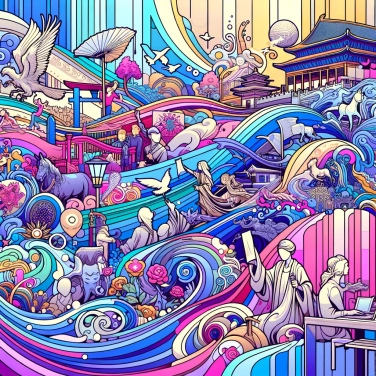Nelson Mandela became a global symbol of the fight against apartheid in South Africa due to his peaceful struggle against racial segregation, his long prison sentence which strengthened his fame, and his ability to bring together different communities to build a rainbow nation after his release.

Apartheid was a political system implemented in South Africa starting in 1948, based on strict segregation according to racial criteria. Black, mixed-race, and Asian populations were subjected to harsh living conditions, separated from whites: no same schools, no free access to certain neighborhoods, prohibition of "interracial" marriages. Globally, this policy quickly shocked many. Several countries economically boycotted South Africa, refusing to trade with this racist regime. Well-known figures, artists, and politicians publicly denounced apartheid, drawing the attention of the international public. Soon, apartheid became a global issue, prompting people all over the world to protest and seriously demand its abolition.
Very early on, engaged against apartheid, Mandela joined the ANC (African National Congress) in the 1940s to defend the rights of black populations in South Africa. Quickly, he established himself as a leader, organizing non-violent protests, civil disobedience campaigns, boycotts, and general strikes to fight against the country's racist laws. In response to the increasing violence of the regime, Mandela later participated in the creation of a secret armed wing of the ANC: Umkhonto we Sizwe, "the spear of the nation." Their struggle became more radical, aiming for sabotage to shake the white power and accelerate the end of apartheid. His relentless and courageous political activism soon made him popular in South Africa, but he became dangerous in the eyes of the government, which hunted him down, arrested him, and sentenced him to life imprisonment in 1964.
Arrested in 1962, Nelson Mandela spends a total of 27 years behind bars, including 18 years on the famous prison island of Robben Island. During this time, he becomes a powerful symbol of resistance to the racial oppression of the apartheid regime for the whole world. His imprisonment turns him into a martyr, embodying the struggle against injustice, recognized and supported far beyond the borders of South Africa. Deprived of freedom but never broken, Mandela symbolizes hope, determination, and human dignity. All around the globe, international campaigns call for his release, and his face appears on posters and t-shirts as an icon of all anti-racist causes and human rights. Even in his cell, Mandela profoundly inspires the global fight against discrimination, becoming a true living legend even before his release.
The release of Nelson Mandela on February 11, 1990 is seen everywhere on television; it's the event everyone has been waiting for. Mandela emerges after spending 27 years in prison due to his fight against apartheid. This release especially marks a strong symbol: it announces the imminent end of the racist regime in South Africa. When Mandela comes out, he does not harbor rage or revenge; on the contrary, he immediately calls for national reconciliation and dialogue with the white leaders. This completely changes the atmosphere and triggers negotiations for the definitive end of apartheid. He quickly becomes the living embodiment of change, a peaceful leader who reassures the international community. Everyone senses that Mandela's release is a true historical turning point toward a free and democratic South Africa.
After his release from prison, Nelson Mandela became the first black president of South Africa in 1994. Transitioning from imprisoned activist to respected statesman, he led the country out of apartheid, advocating for reconciliation between Blacks and Whites. Mandela implemented a policy based on forgiveness, thus avoiding a civil war that seemed almost inevitable. He is particularly credited with the creation of the Truth and Reconciliation Commission, which allowed thousands of victims to publicly express their suffering, fostering the healing of past wounds. His term was also marked by economic reconstruction and improved access to education and healthcare for all citizens, regardless of their backgrounds. Thanks to his natural charisma, courage, and peaceful determination, Mandela became the universal symbol of a democracy finally regained in South Africa.
Nelson Mandela spent exactly 27 years, 6 months, and 6 days in prison, mostly on the isolated Robben Island, which has now become a UNESCO World Heritage site.
Following his imprisonment, Mandela became the most famous political prisoner in the world, leading millions of people to sign international petitions demanding his release.
Nelson Mandela's prisoner number, 46664 ('466' was the number assigned to Mandela, who was imprisoned in 1964), has become a widely used emblem to raise awareness about the fight against AIDS and to promote freedom and human rights.
Nelson Mandela inspired the concept of 'Mandela Day' (July 18), an annual global event during which citizens around the world symbolically dedicate 67 minutes (representing the 67 years of Mandela's struggle for social justice) to serve their community.
Nelson Mandela is globally recognized for his values of peace, reconciliation, and social justice. His leadership and courage have established him as a universal symbol in the fight against racial oppression and social injustices.
Nelson Mandela was arrested for his active fight against apartheid. In 1964, he was sentenced to life imprisonment for sabotage and conspiracy during the Rivonia trial, due to his militant actions for racial equality.
Nelson Mandela spent 27 years in prison, from 1963 to 1990, primarily on Robben Island, which later became a global symbol of resistance to oppression.
After his release, Nelson Mandela led peaceful negotiations that ultimately abolished the apartheid system. In 1994, he became the first democratically elected black president of South Africa.
Apartheid was a system of segregation and racial discrimination established in South Africa in 1948. It deprived the black majority of fundamental rights and implemented a racist policy favoring the white minority.

No one has answered this quiz yet, be the first!' :-)
Question 1/5